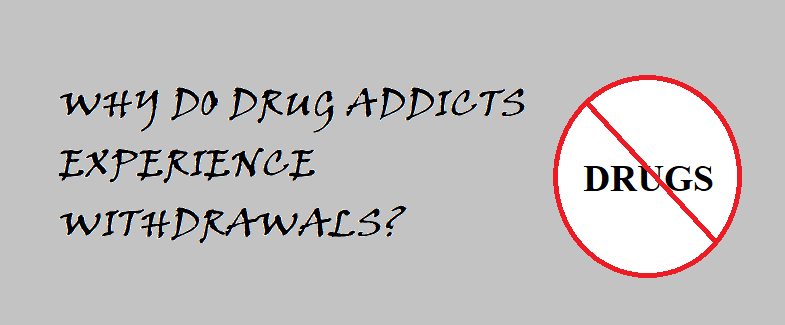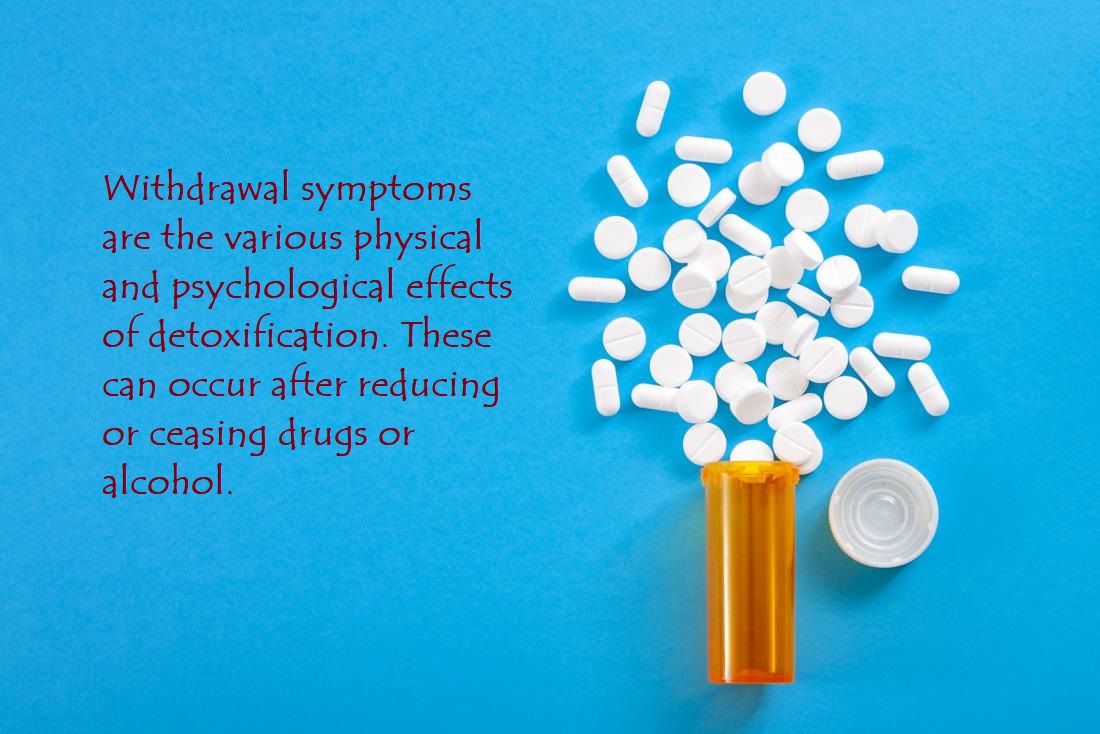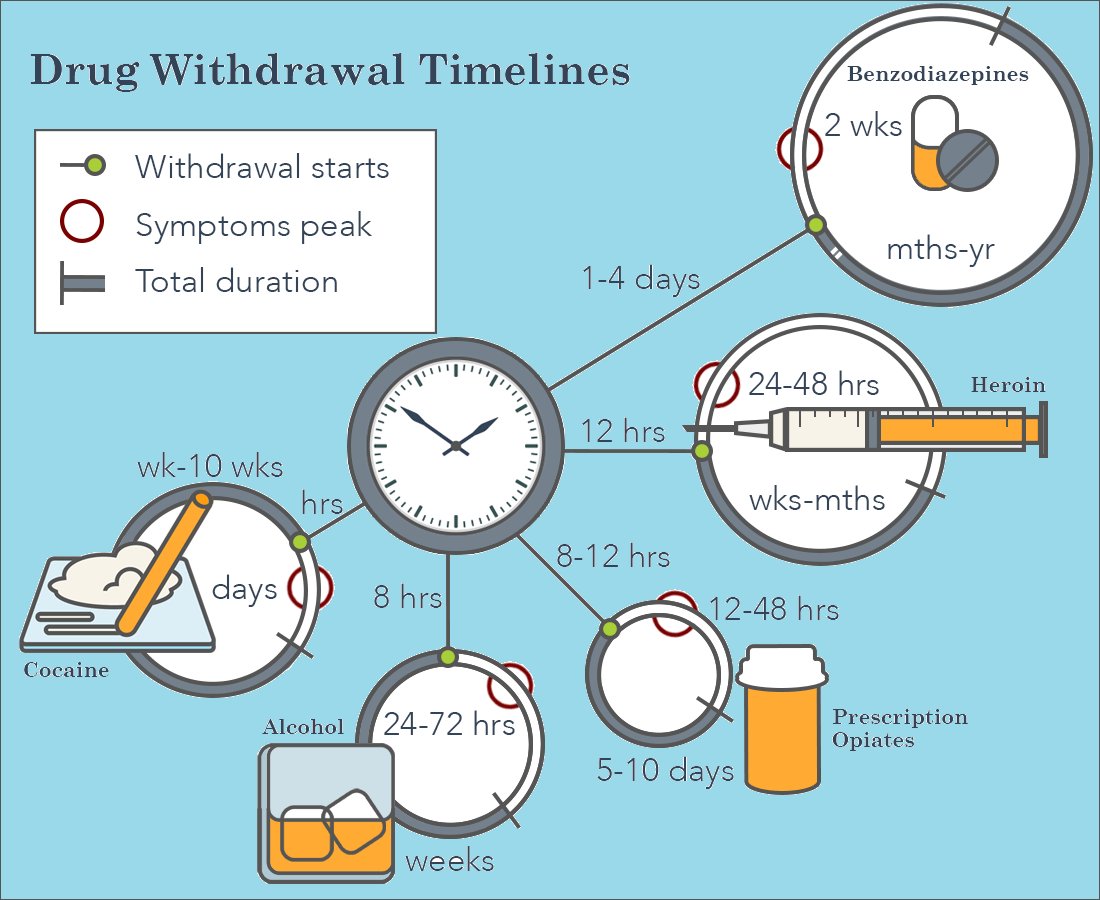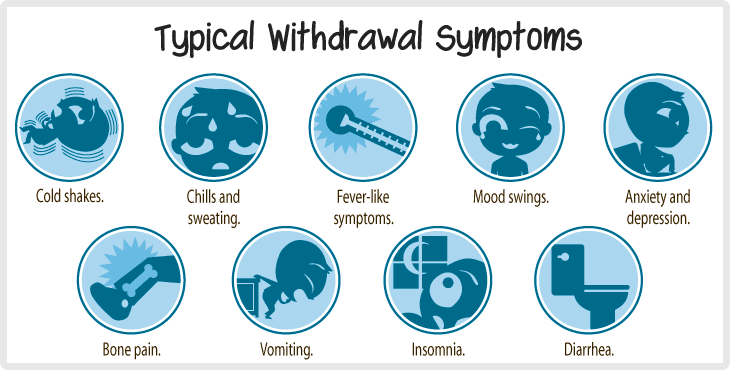
What is drug withdrawal? How can one prevent withdrawal symptoms?
What is withdrawal (or drug withdrawal)?
Also known as detoxification or detox, it is a situation when a person stops or reduces the consumption of intoxicating substances like alcohol, etc. A person might develop a physical or psychological dependence on a drug. The symptoms once can experience during the withdrawal period can significantly vary based on the following factors:

- Their age
- Physical health
- Method of withdrawal
- How long they’ve been taking that substance?
- What was the drug?
- Psychological condition
Physical dependence
When a person takes a drug for an extended period, their body comes to rely on it, to get the feeling of being healthy. The body will adjust itself to work with the drug present in the system, and if it didn’t get the required amount, then the person can start to feel the withdrawal symptoms.
Psychological dependence
Just like the body, the brain also adapts to the effects of the drugs. After prolonged use, a time comes when the mind must get the drug to function correctly. This effect can amplify when a person believes that they require a particular substance to go to a social event or get rid of the stress from the work. They experience severe withdrawal symptoms when they fail to acquire the drug.
Symptoms
While the body is adjusting to functioning without the drug, a person can experience a wide range of symptoms, which can vary from mild to severe. Each drug has different withdrawal symptoms depending on its intended use case. During this period, a person can have the exact opposite feeling as they got when they were using the drug. For instance, a person who is getting withdrawal symptoms from an antidepressant might feel agitated and restless or experience tremors.
Cravings
The mind can have a desire for the drug, as it is the quickest way for it to feel good. For people dependent on drugs, this becomes the way to deal with all the problems and to avoid bad feelings. The craving can come and go, and its intensity can also vary.

Managing craving is essential in the long-run. It helps in overcoming the withdrawal effects, as the desire can resurface even after many years since a person quit using these drugs. The methods used for managing the cravings involve relaxation and distraction techniques like watching movies, reading, exercising, or meditating. Overcoming the desire to consume these drugs is achievable as it is a learned behavior which the brain develops over time, and one can re-train their mind to suppress this feeling and follow a new thought pattern.
Time
The time it takes to get over the withdrawal symptoms ultimately can vary greatly depending on various factors. Some symptoms can disappear in the short-term, while others like cravings can last for a much more extended period. The following factors can influence the duration of the withdrawal period:
- General health
- How long they were using it
- If they were using any other drugs
- The type of drugs they were using
- Under what conditions they stop using them
Is withdrawal safe?
Getting to quit a drug is hard, and even more so if a person tries to do it on their own. The probability of relapse is very high in the initial days. So the people trying to get rid of their drug habit should do it under medical supervision to have a safe withdrawal. It is essential to discuss the situation with a doctor or alcohol and other drug treatment service, especially for the people withdrawing from alcohol, benzodiazepine, GHB, or ketamine.
Where can I go?
A person requires a safe and supportive environment during the period of withdrawal. They can discuss with a healthcare professional, or alcohol or drug service to get the recommendation for the setting best for them. Based on the individual case, these healthcare professionals can suggest any of the following.
Home-based withdrawal
In this treatment, a team including a doctor, a nurse, and a support person who can be a friend or family member, help the patient in their withdrawal period. If the withdrawal symptoms are not much complicated, then this might be the best choice for an individual.
Outpatient withdrawal

If one does not desire to get admitted to residential service, then this can prove to be a better choice for them. In this method, the patient and doctor have one-on-one consultation sessions over a short period, and ongoing support and counseling.
Residential withdrawal
People who find it hard to quit drugs can go for this method. People usually have to spend between 5 and 10 days in the residential withdrawal unit of a hospital where they can be under the supervision of medical staff 24 hours a day. These professionals will help the person during withdrawal to avoid relapse. Some residential facilities don’t even let the patients contact anyone, neither family nor friends. So that they can concentrate on the recovery process instead of fixating on what’s happening with others.
How can I prepare?
People need to prepare a follow-up treatment plan after the withdrawal, but they should also work on the things that will help them during the withdrawal period. A properly planned withdrawal decrease the chances of relapse. A person should follow the steps as mentioned here for a successful recovery process.
Talk to the doctor
The very first step towards getting off of a drug is to talk to a professional. They can help guide a person in the right direction. Also, make sure to have a person who can support you during the withdrawal period as it can be a very crucial time for the addict.
Write down the personal reason for withdrawing
Make a list of positives and negatives effects of giving up the drugs. Doing this can motivate a person when they find it hard to stop using drugs.
Plan what to do if they use drugs during withdrawal
People often find it hard to control themselves and, in the heat of the moment, take the substance. It can happen to anyone, but the vital thing to know is that it is not the end of it. Treat it like a minor setback and learn from it by figuring out why it happened and try to avoid that situation in the future.
Divert the attention towards something else
In the initial days of withdrawal, it is harder to concentrate on anything for long. The memories can also not work well. So, diverting attention towards other activities might help significantly. One can try the following actions to get their mind off of drugs.
- Reading
- Going on walks
- Taking trips
- Watching TV or movies
- Medicate
- Talk to someone
Be aware of the rules
Every withdrawal facility will have different sets of rules and restrictions regarding visitors and contacting someone. A patient has to follow for the duration of the withdrawal or as long as they stay there. Following these rules can help them recover at a faster pace.
Eat healthily
It is also an essential aspect of the recovery process. People might have a craving for junk food, but it would be better for them to maintain a balanced diet and stay hydrated. Doing this can reduce symptoms, such as mood swings.

